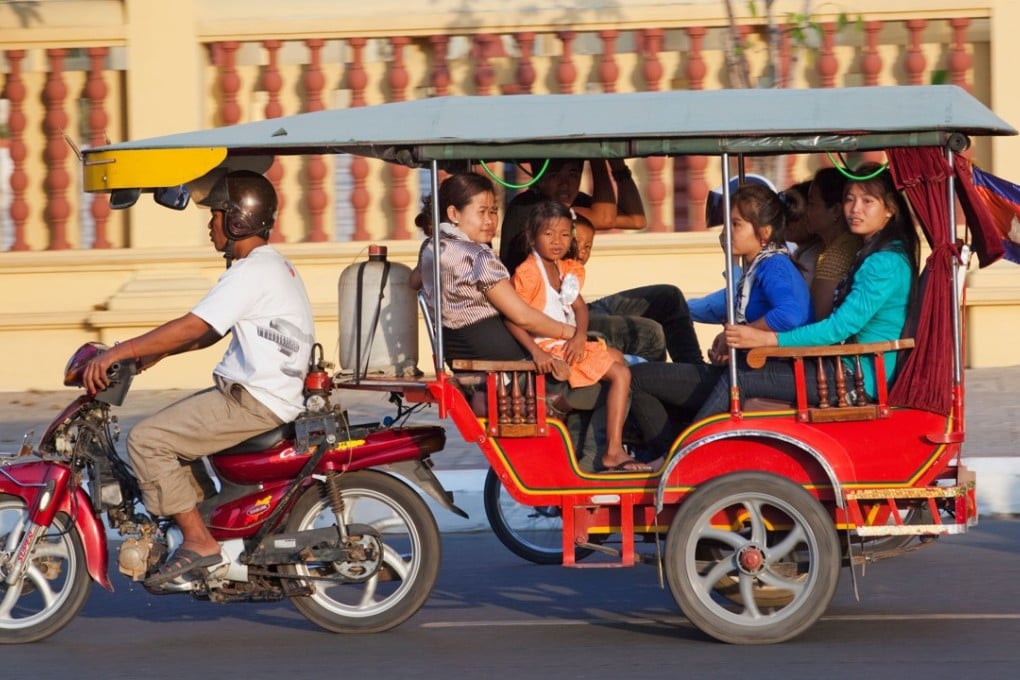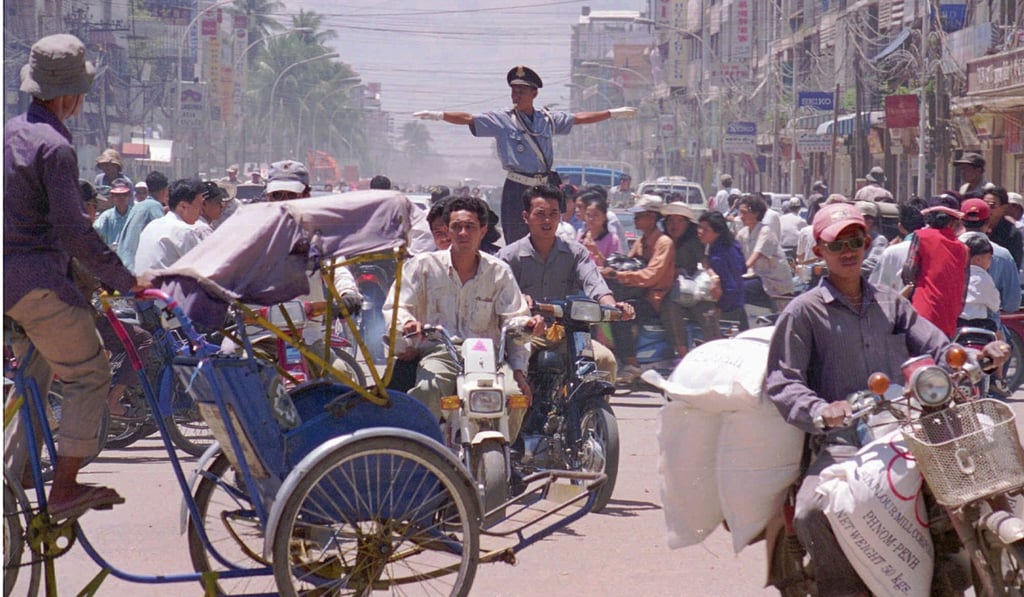What will become of Cambodia’s endangered tuk-tuk drivers?
Phnom Penh’s favourite carriages are facing an assault from all sides – from a government keen to phase them out for more modern transport to cheaper rickshaws and the perils of a saturated market

For the past 20 years, Poch Naht has parked his tuk-tuk in the same spot on Phnom Penh’s bustling Sothearos Boulevard. He spends his days waiting to take passengers around the city, earning between US$5-US$10 a day, which he uses to support his wife and three children. “You can say it’s difficult,” Naht said of his work. “Some days you get some money, some days you do not.”
In recent years, as Cambodia has emerged from economic obscurity and Phnom Penh has made progress towards becoming a world class, metropolitan city, work has been increasingly hard to come by for drivers like Naht. “Now, the income is less because there are so many tuk-tuks,” he says, his eyes hidden behind black sunglasses.

Cambodia’s capital is expanding at breakneck pace, with construction investment doubling between 2015 and 2016 and skyscrapers popping up throughout the city centre. Tourists, who for many years largely avoided Cambodia in favour of its more developed neighbours like Thailand, are arriving in droves, with arrivals growing roughly 850 per cent between 2001 and 2016.
Tuk-tuks, two-wheeled carriages pulled by motorbikes that can fit anywhere from two people to entire families, are a ubiquitous sight throughout Cambodia. While the official name is remorque, or “trailer” in French, they are colloquially known as tuk-tuks, paying homage to their Thai counterparts.
In hubs like Phnom Penh and Siem Reap, the home of the famed Angkor Wat temple complex, drivers at nearly every street corner in the capital can be seen soliciting passengers, sometimes to the consternation of tourists. According to the Independent Democracy of Informal Economy Association (IDEA), the largest tuk-tuk union in Cambodia, there are approximately 6,000 drivers in Siem Reap and 10,000 in Phnom Penh.